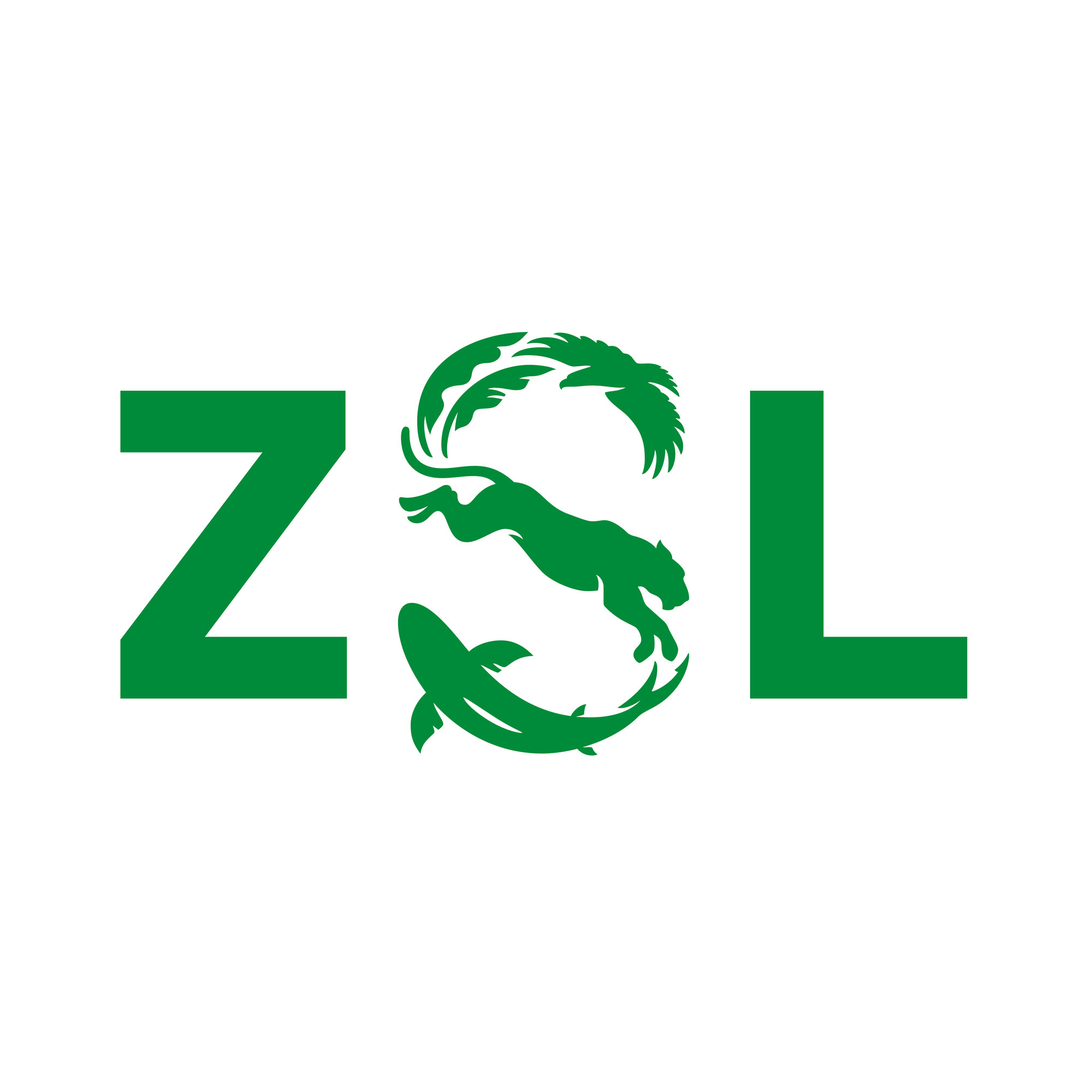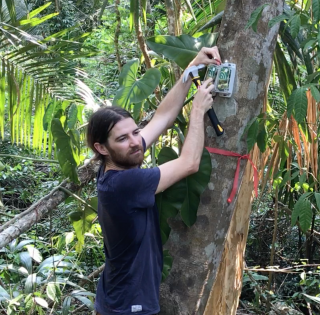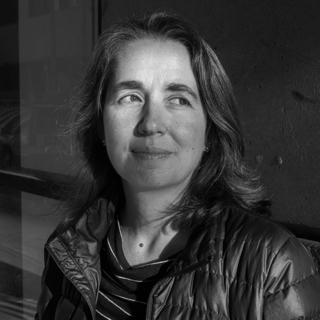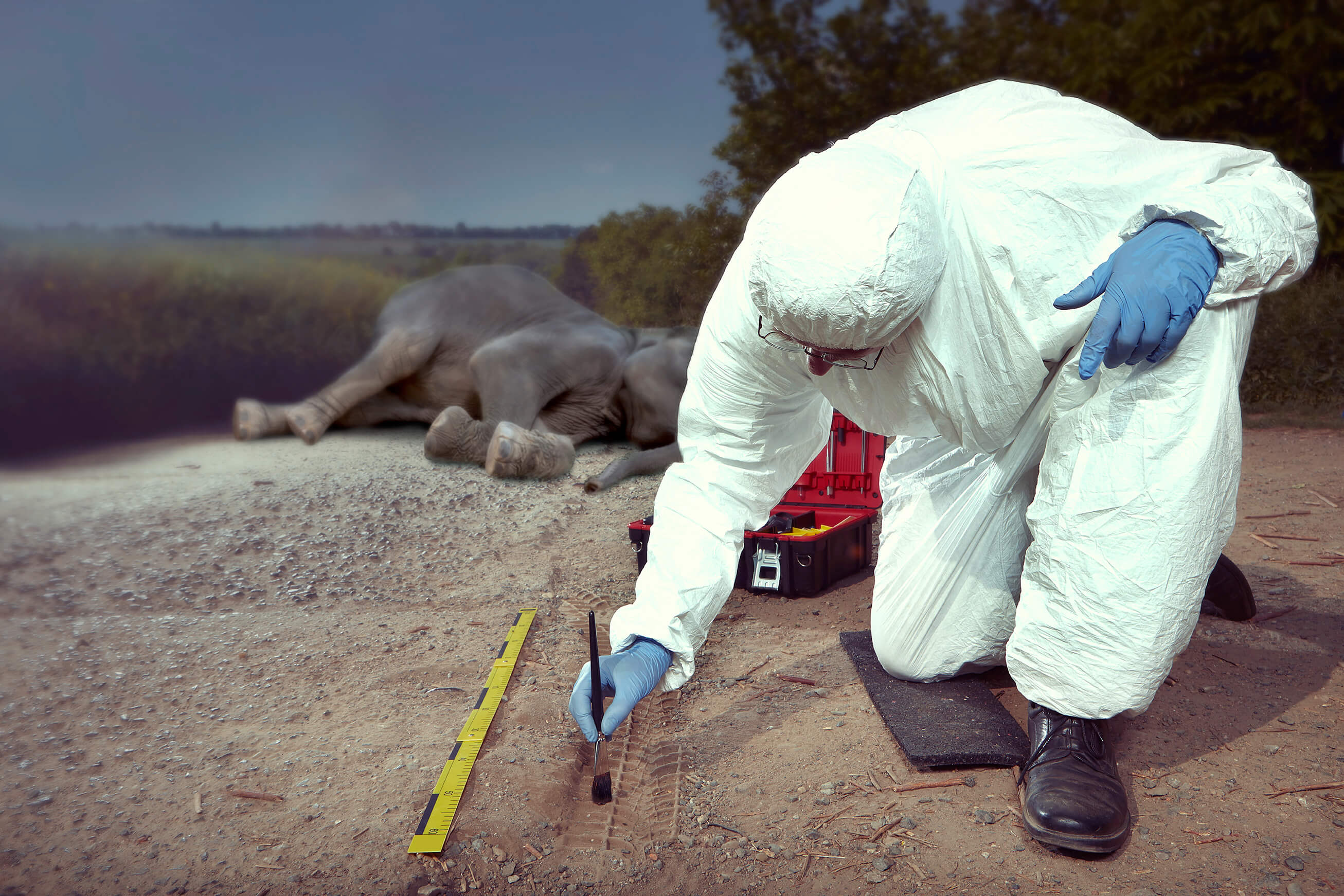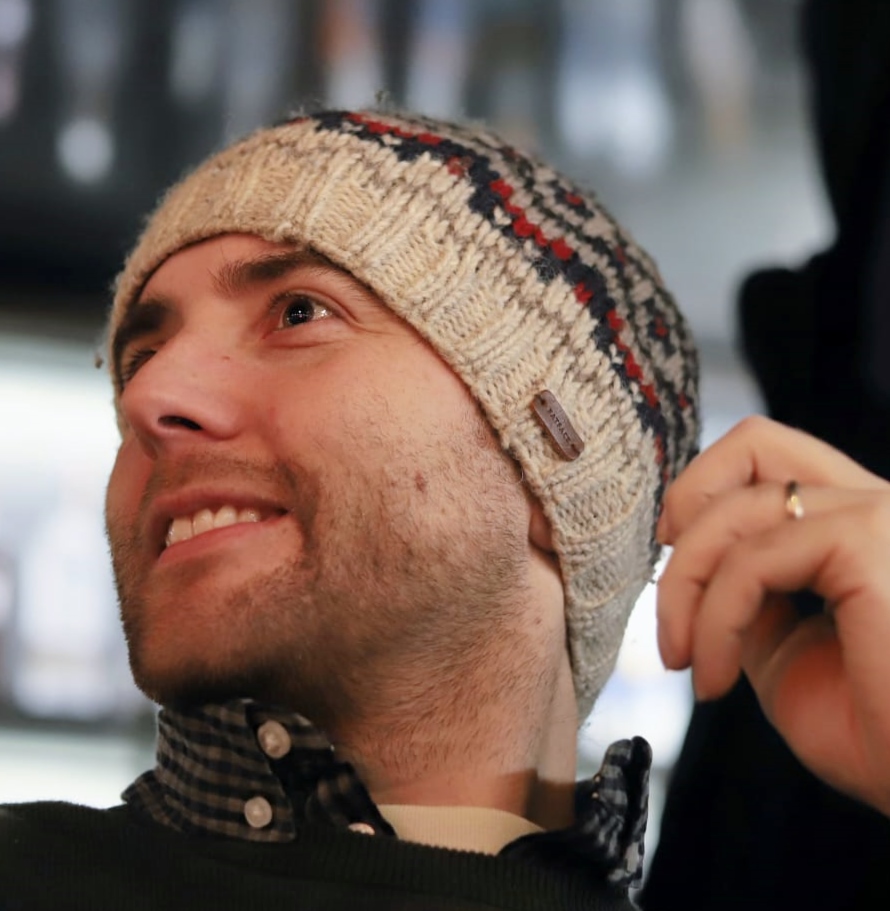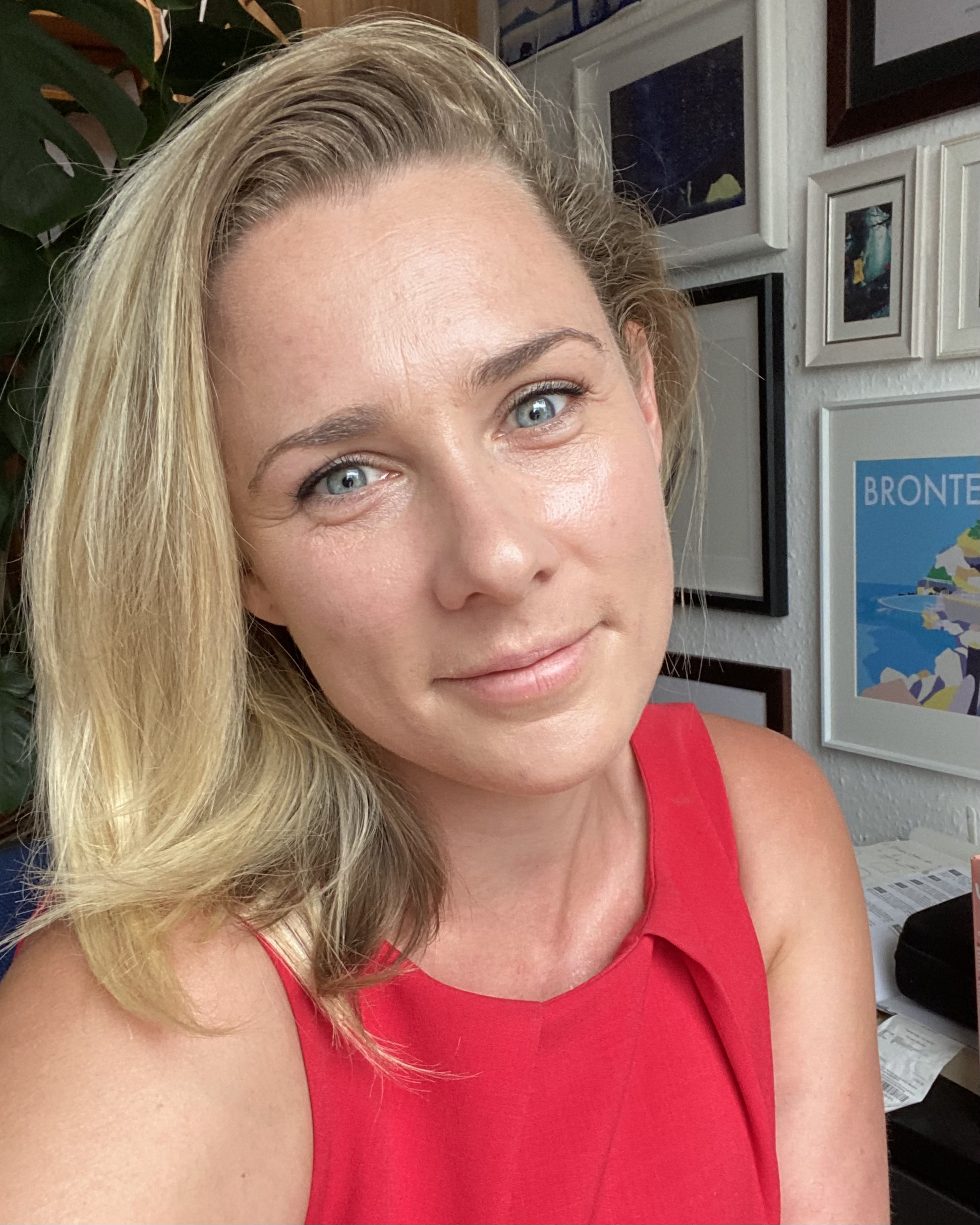With new technologies revolutionizing data collection, wildlife researchers are becoming increasingly able to collect data at much higher volumes than ever before. Now we are facing the challenges of putting this information to use, bringing the science of big data into the conservation arena. With the help of machine learning tools, this area holds immense potential for conservation practices. The applications range from online trafficking alerts to species-specific early warning systems to efficient movement and biodiversity monitoring and beyond.
However, the process of building effective machine learning tools depends upon large amounts of standardized training data, and conservationists currently lack an established system for standardization. How to best develop such a system and incentivize data sharing are questions at the forefront of this work. There are currently multiple AI-based conservation initiatives, including Wildlife Insights and WildBook, that are pioneering applications on this front.
This group is the perfect place to ask all your AI-related questions, no matter your skill level or previous familiarity! You'll find resources, meet other members with similar questions and experts who can answer them, and engage in exciting collaborative opportunities together.
Just getting started with AI in conservation? Check out our introduction tutorial, How Do I Train My First Machine Learning Model? with Daniel Situnayake, and our Virtual Meetup on Big Data. If you're coming from the more technical side of AI/ML, Sara Beery runs an AI for Conservation slack channel that might be of interest. Message her for an invite.
Header Image: Dr Claire Burke / @CBurkeSci

Explore the Basics: AI
Understanding the possibilities for incorporating new technology into your work can feel overwhelming. With so many tools available, so many resources to keep up with, and so many innovative projects happening around the world and in our community, it's easy to lose sight of how and why these new technologies matter, and how they can be practically applied to your projects.
Machine learning has huge potential in conservation tech, and its applications are growing every day! But the tradeoff of that potential is a big learning curve - or so it seems to those starting out with this powerful tool!
To help you explore the potential of AI (and prepare for some of our upcoming AI-themed events!), we've compiled simple, key resources, conversations, and videos to highlight the possibilities:
Three Resources for Beginners:
- Everything I know about Machine Learning and Camera Traps, Dan Morris | Resource library, camera traps, machine learning
- Using Computer Vision to Protect Endangered Species, Kasim Rafiq | Machine learning, data analysis, big cats
- Resource: WildID | WildID
Three Forum Threads for Beginners:
- I made an open-source tool to help you sort camera trap images | Petar Gyurov, Camera Traps
- Batch / Automated Cloud Processing | Chris Nicolas, Acoustic Monitoring
- Looking for help with camera trapping for Jaguars: Software for species ID and database building | Carmina Gutierrez, AI for Conservation
Three Tutorials for Beginners:
- How do I get started using machine learning for my camera traps? | Sara Beery, Tech Tutors
- How do I train my first machine learning model? | Daniel Situnayake, Tech Tutors
- Big Data in Conservation | Dave Thau, Dan Morris, Sarah Davidson, Virtual Meetups
Want to know more about AI, or have your specific machine learning questions answered by experts in the WILDLABS community? Make sure you join the conversation in our AI for Conservation group!
- @leonardoscarpa
- | He/His
I'm Leonardo, I'm a biologist, and I'm passionate about movement ecology. Another of my hobbies is GIS. I have a master's degree in this topic, which I complement with the use of technology such as drones, camera traps and acoustic receivers
- 0 Resources
- 0 Discussions
- 10 Groups
- @Thomas_Luypaert
- | He/him
Norwegian University of Life Sciences (NMBU)
Ecological monitoring enthusiast with a focus on ecological and conservation research
- 1 Resources
- 1 Discussions
- 7 Groups
Working in relation to ecosystem services
- 0 Resources
- 0 Discussions
- 8 Groups
- @jdomingo
- | He/Him
I am an enthusiast for nature, technology development, biodiversity conservation and nature inspired design. I posses a technical and environmental background, and I am looking to explore the potential that advance technology has to empower the field of nature conservation.

- 0 Resources
- 9 Discussions
- 2 Groups
- @och3k
- | she/her
- 0 Resources
- 0 Discussions
- 2 Groups
CIBIO-InBio
I am a PhD student working on wolf bioacoustics. I am combining Audiomoths and Deep Learning into more efficient wolf monitoring protocols. My main field of interest is population ecology.
- 0 Resources
- 0 Discussions
- 3 Groups
- @nadyam
- | she/her
Michigan State University
Conservation geneticist at Michigan State University. Co-founder of iCatch. Solving problems in monitoring, traceability, and enforcement through rapid species identification tech.
- 0 Resources
- 3 Discussions
- 6 Groups
Passionate advocate for nature and experienced communicator, looking to explore opportunities to leverage technology in wildlife and marine conservation
- 0 Resources
- 0 Discussions
- 7 Groups
- @nlubcker
- | Dr
Results-Driven R&D Project Manager | Data scientist | I'm a versatile professional with 10 years of global experience in conservation and research.
- 0 Resources
- 1 Discussions
- 7 Groups
- @mariahmeek
- | she/her
Michigan State University
Dr. Mariah Meek is the PI and co-founder of iCatch, an Associate Professor at Michigan State University, and the Director of Research at The Wilderness Society.
- 0 Resources
- 0 Discussions
- 5 Groups
- @Alex.S
- | She/Her
MSc Marine Biologist and Data Scientist, Co-Founder and CSO & CTO of Galene Pathways
- 0 Resources
- 0 Discussions
- 8 Groups
PhD candidate studying the ethics of tech in human-animal interactions.
- 0 Resources
- 1 Discussions
- 3 Groups
Following the UK Government’s landmark announcement of plans to introduce a complete ban on the domestic trade in ivory, it was fitting that a new machine learning product designed to tackle the supply end of this...
6 December 2017
Article
A new research project is looking to investigate whether technology combined with the ancient skills and knowledge of Namibian trackers can help save cheetahs from extinction. Called FIT Cheetahs, the research project...
4 December 2017
With Arctic sea ice disappearing, can advanced sensor technologies provide insights into an ecosystem on the brink?
30 November 2017
Our panel of international experts has been hard at work reviewing the 47 proposals we recieved for innovative technological tools to address human wildlife conflict. The panelists have systematically been assessing the...
20 October 2017
The Domain Awareness System (DAS) is a revolution in monitoring technology, creating real-time awareness of protected areas assets. This technology has the potential to completely change standard monitoring procedures...
26 September 2017
Frustrated by the limitations of the tools that were available for managing large camera trap data sets, Heidi Hendry and Chris Mann set out to develop something that met their needs, and thus, Camelot was born. In...
7 July 2017
Funding
The European Space Agency is calling for Kick-Start ideas to leverage space technology for wildlife protection. Three main topics of interest have been identified: 1) Wildlife monitoring, tracking and inventory, 2)...
5 July 2017
Its been a busy couple of months for the Open Acoustic Devices team. They've just returned back from Belize where they have been trialling the new AudioMoth design for gunshot detection. Find out what they've been up to...
27 June 2017
Article
There is a revolution coming in conservation. Advances in conservation technology are generating more data than ever before on what lives where, who eats who, and what’s disappearing and how fast, but it still requires...
10 May 2017
Researchers have identified 15 emerging risks and opportunities for species and ecosystems around the world in a recent horizon scanning exercise.
31 March 2017
The Conservation Leadership Programme (CLP) is a training and capacity building programme that targets individuals from developing countries who are early in their conservation career and demonstrate leadership...
21 November 2016
FishFace is a new application under development by The Nature Conservancy in partnership with Refind Technologies. Similar to facial recognition software used to identify people, FishFace uses artificial intelligence to...
10 November 2016
June 2025
event
July 2025
October 2025
event
event
December 2020
June 2020
March 2020
73 Products
Recently updated products
16 Products
Recently updated products
| Description | Activity | Replies | Groups | Updated |
|---|---|---|---|---|
| greetings! i sent you a PM regarding this, feel free to contact me however is most convenient for you - regards,chris |
|
Acoustics, AI for Conservation, Camera Traps, Climate Change, East Africa Community, Wildlife Crime | 2 years 1 month ago | |
| I'm looking for any recommendations for any entry level/internship remote roles/companies in the United States that are focused in... |
|
AI for Conservation, Conservation Tech Training and Education, Early Career, Geospatial | 2 years 1 month ago | |
| Hi everyone! and thanks @StephODonnell for the invite :)I’m a software engineer working on MLOps, and currently studying for a part-time... |
|
AI for Conservation, Open Source Solutions | 2 years 1 month ago | |
| Indeed, I'll be there too! I like to meet new conservation friends with morning runs, so I will likely organize a couple of runs, maybe one right near the conference, and... |
|
Acoustics, AI for Conservation, Autonomous Camera Traps for Insects, Camera Traps, Geospatial | 2 years 1 month ago | |
| Hi everyone! The Fine Grained Visual Categorization Workshop (FGVC) is hosting its 10th rendition at CVPR this June in Vancouver. A huge... |
|
AI for Conservation, Camera Traps, Marine Conservation | 2 years 1 month ago | |
| Hi everyone,I'm new here :)I'm doing my thesis of biology bachelor about Rhino poaching. I wanted to ask here if yu have some articles... |
|
AI for Conservation, Ending Wildlife Trafficking Online, Human-Wildlife Conflict, Wildlife Crime | 2 years 1 month ago | |
| Yes please reach out with any questions on acoustic monitoring, Arbimon, RFCx, etc.! |
|
Acoustics, AI for Conservation, Data management and processing tools | 2 years 1 month ago | |
| I couldn't agree more with both of these comments tom! I'm reading hundreds (literally hundreds) of applications for open WILDLABS roles at the moment, and the ones that stand out... |
+2
|
AI for Conservation, Drones, Early Career, Sensors | 2 years 2 months ago | |
| We have made available our underwater videos on YouTube as a playlist https://www.youtube.com/playlist?list=PLnhVZKKy8WkZKriCIV6r7upWhHNVrU_7L It's about 1.113 short video... |
+2
|
AI for Conservation, Camera Traps, Data management and processing tools, Marine Conservation | 2 years 2 months ago | |
| Hi Steph, This should be a simple project. Recently I came across a website with a sample video I am not sure whether it was from the wild Labs website. Where a camera is... |
|
AI for Conservation, Camera Traps | 2 years 3 months ago | |
| Bluesky have a commercial tree crown dataset available covering most of Great Britain (England, Wales and parts of Scotland). There is a canopy layer with approximate outlines of... |
|
AI for Conservation, Drones | 2 years 3 months ago | |
| Rainforest Connection's (RFCx) Guardian devices may be of interest. They are solar-powered and have connectivity options for Wifi, GSM and satellite transfer. They've previously... |
|
Acoustics, AI for Conservation, Connectivity, Data management and processing tools, Protected Area Management Tools, Sensors | 2 years 3 months ago |












